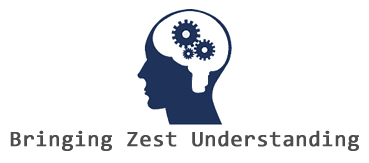List 3 things that you should consider when choosing a career
Choosing a career is a significant decision that can have a profound impact on various aspects of your life. Here are three important considerations to keep in mind when making this decision:
- Interests and Passions:
- Consider what genuinely interests and motivates you. Reflect on your hobbies, activities, and the subjects you enjoyed studying. A career aligned with your passions is more likely to bring satisfaction and a sense of fulfillment. Think about the tasks or projects that you find engaging and enjoyable, as a career that aligns with your interests is more likely to be fulfilling in the long term.
- Skills and Strengths:
- Assess your skills and strengths objectively. Identify the areas where you excel and the skills you have developed through education, work experience, or personal pursuits. A career that leverages your strengths and allows you to apply your skills is likely to be more rewarding and can lead to success. Additionally, consider how your skills align with the demands of the job market and the requirements of the career you’re considering.
- Values and Lifestyle:
- Reflect on your personal values and the lifestyle you envision. Consider factors such as work-life balance, flexibility, job stability, and the potential for advancement. Think about the values that are important to you, such as social impact, creativity, autonomy, or teamwork. Choose a career that aligns with your values and provides the lifestyle you desire. Additionally, assess the long-term prospects and growth potential of the chosen career to ensure it aligns with your future goals.
It’s important to note that the decision-making process for choosing a career is highly individual, and personal circumstances, preferences, and goals play a crucial role. Take the time to explore different options, gather information, and, if possible, seek advice from professionals in your fields of interest.
Career decisions are not always final, and individuals may navigate through different career paths throughout their lives. Regularly reassessing your goals and priorities can help ensure that your chosen career remains a good fit for your evolving needs and aspirations.
Making career decisions is a significant and often complex process that involves careful consideration of various factors. Here is a step-by-step guide to help you navigate the process of making informed career decisions:
- Self-Assessment:
- Interests: Identify your interests, hobbies, and activities that genuinely engage you. Consider what you enjoy doing in your free time.
- Skills: Assess your skills and strengths. Identify the areas where you excel, both in terms of hard skills (technical abilities) and soft skills (communication, teamwork, leadership).
- Values: Reflect on your core values. What aspects of work and life are important to you? Consider factors such as social impact, creativity, autonomy, and work-life balance.
- Research Career Options:
- Explore Occupations: Investigate various career options related to your interests and skills. Use online resources, career websites, and informational interviews with professionals in different fields to gather insights.
- Education and Training: Understand the educational and training requirements for different careers. Consider whether you need additional education or certifications to pursue a particular path.
- Set Goals:
- Short-Term and Long-Term Goals: Define your short-term and long-term career goals. What do you aim to achieve in the next few years, and where do you see yourself in the long term?
- Alignment with Personal Goals: Ensure that your career goals align with your personal aspirations, lifestyle preferences, and values.
- Evaluate Job Market Trends:
- Industry Trends: Research current job market trends and the demand for different skills and professions. Consider industries that are growing and evolving.
- Growth and Stability: Assess the growth potential and stability of the careers you are considering.
- Seek Guidance:
- Mentorship: Seek advice from mentors, professionals in your network, or career counselors. They can provide valuable insights and guidance based on their experiences.
- Networking: Connect with professionals in your areas of interest through networking events, informational interviews, and online platforms like LinkedIn.
- Gain Experience:
- Internships and Volunteering: Gain practical experience through internships, volunteer opportunities, or part-time jobs. Hands-on experience can help you understand the day-to-day realities of different careers.
- Consider Work-Life Balance:
- Evaluate Lifestyle Preferences: Consider your lifestyle preferences, including work hours, travel requirements, and flexibility. Choose a career that aligns with the work-life balance you desire.
- Financial Considerations:
- Salary Expectations: Research salary expectations for your chosen career. Consider the financial aspects of your decision, including potential earnings and job benefits.
- Student Loans and Expenses: If pursuing additional education, carefully evaluate the financial implications, including student loans and associated expenses.
- Decision-Making Framework:
- Pros and Cons: Create a list of pros and cons for each potential career option. Evaluate the advantages and disadvantages to make an informed decision.
- Decision-Making Criteria: Establish criteria that are important to you, such as job satisfaction, growth opportunities, and alignment with personal values.
- Stay Adaptable:
- Be Open to Change: Recognize that career decisions are not always permanent. Stay open to exploring new opportunities and adapting your career path based on changing interests or circumstances.
Remember that making career decisions is a dynamic process, and it’s okay to reassess and adjust your path as needed. Regularly reflect on your goals, stay informed about industry trends, and remain adaptable to changes in your professional journey.

